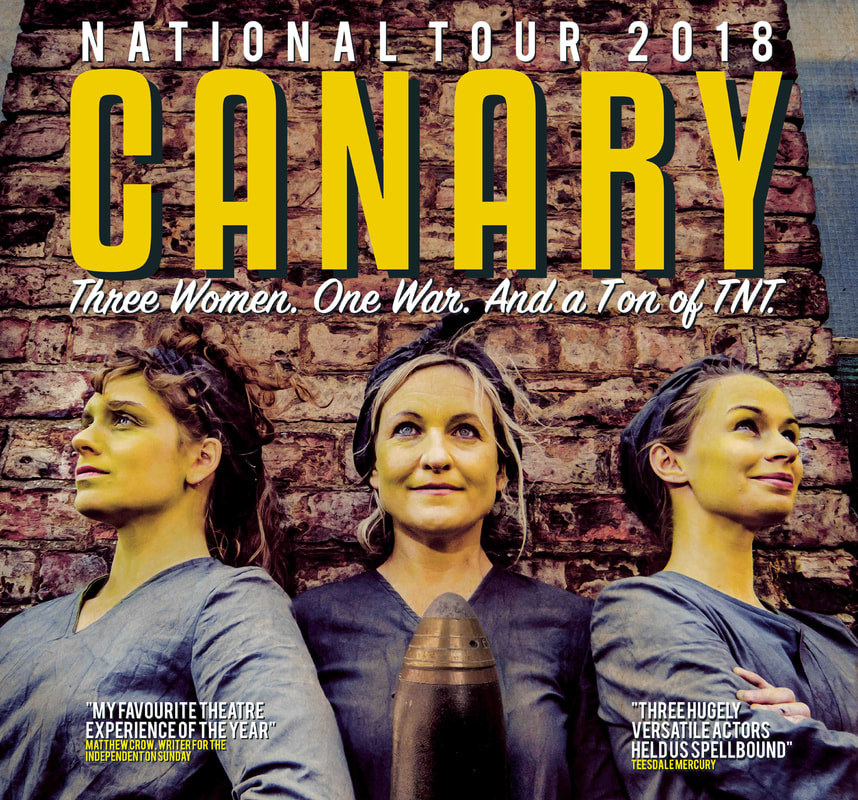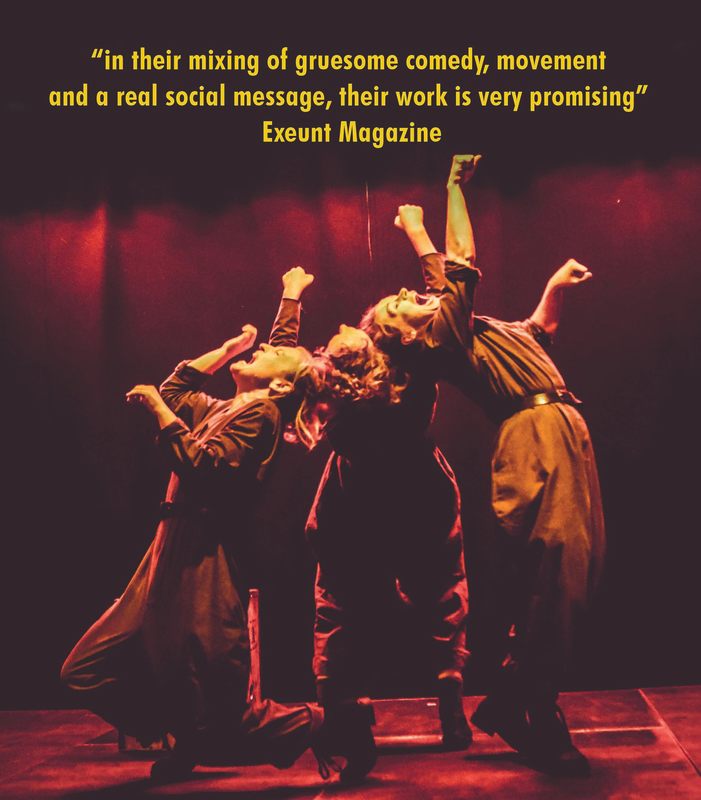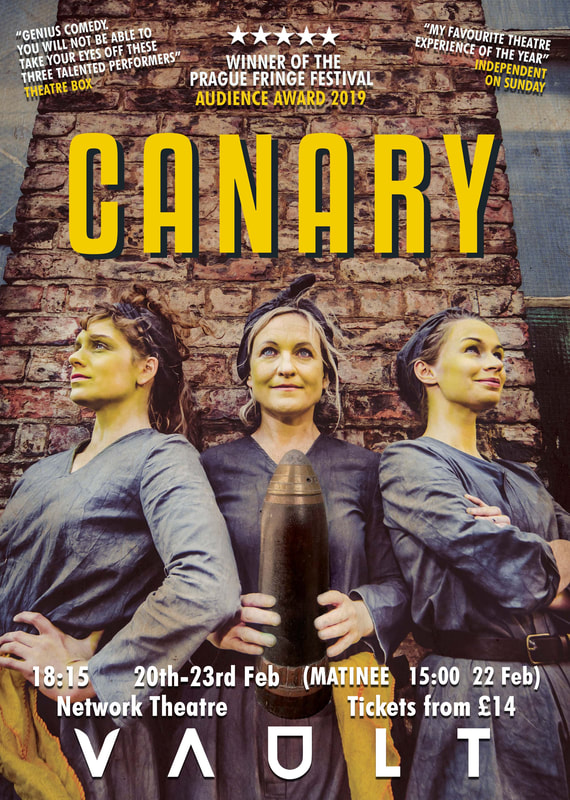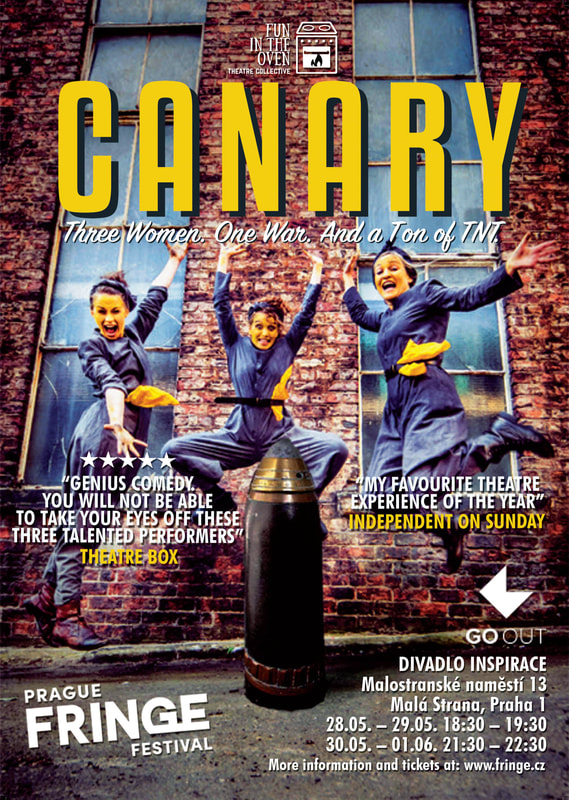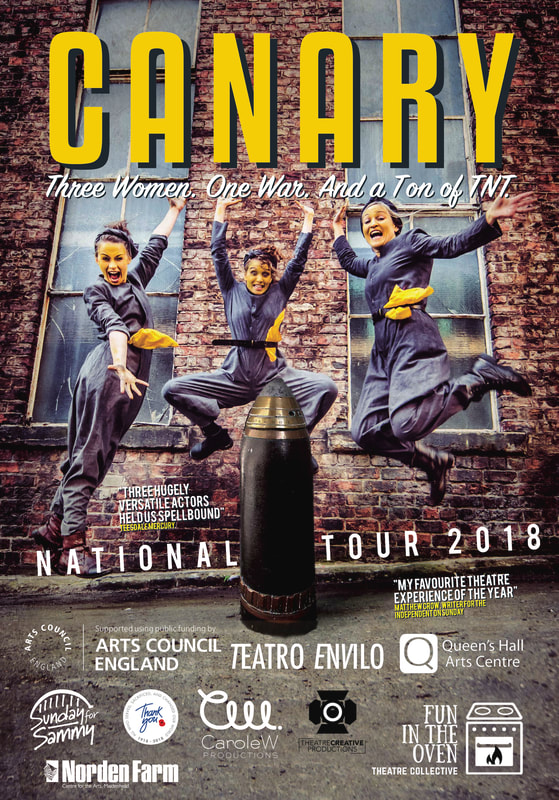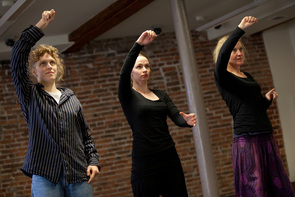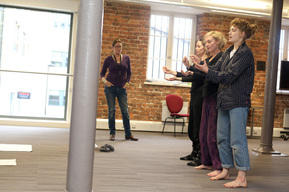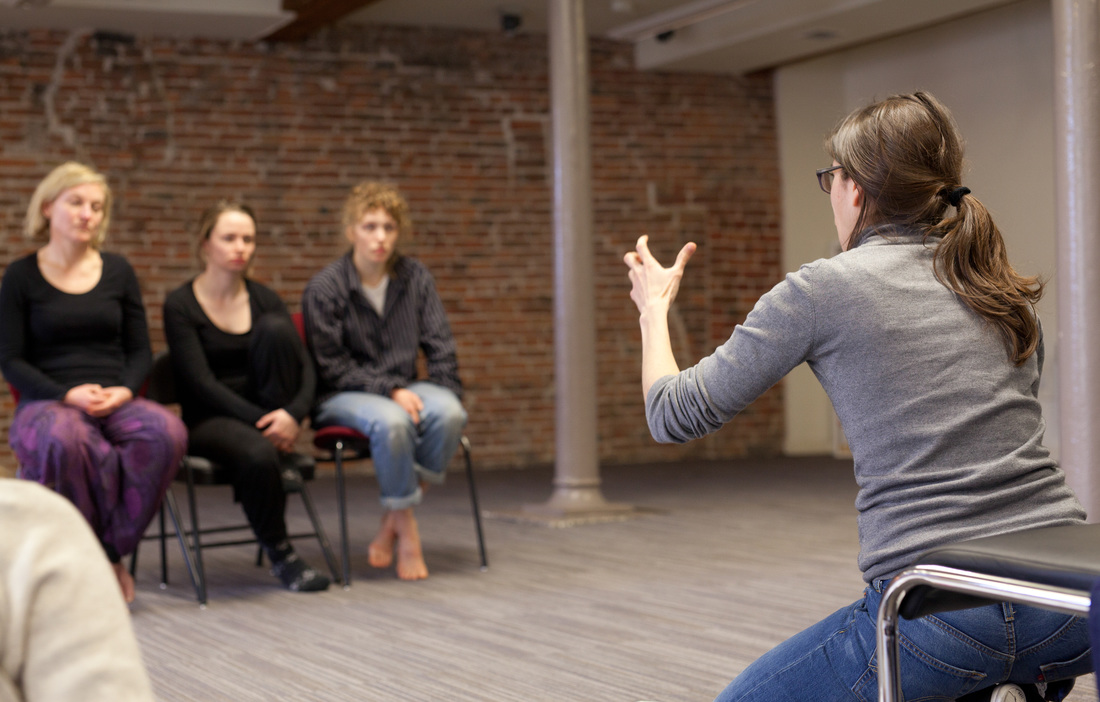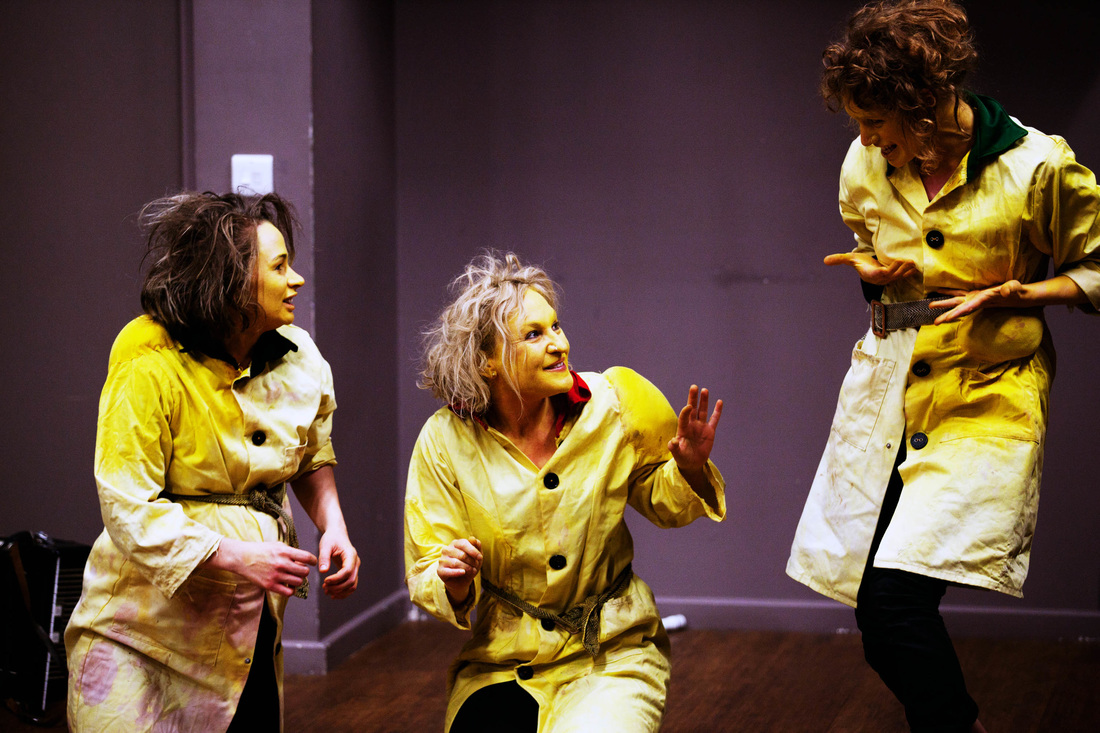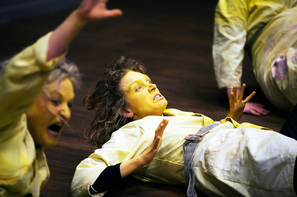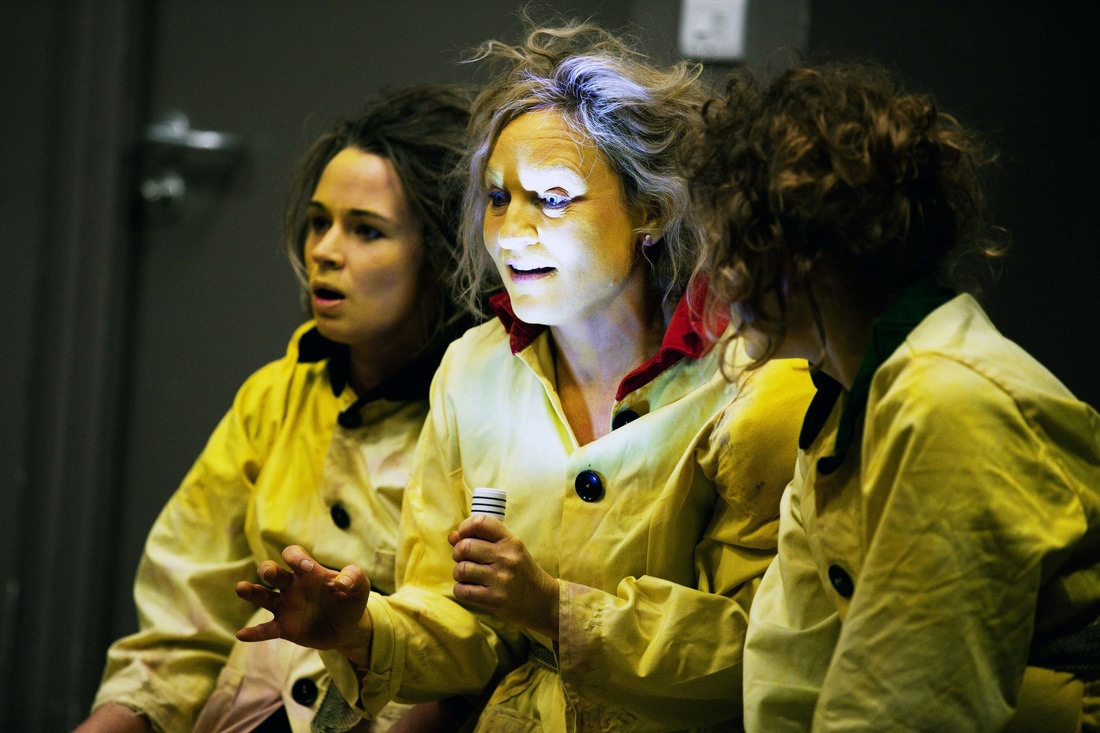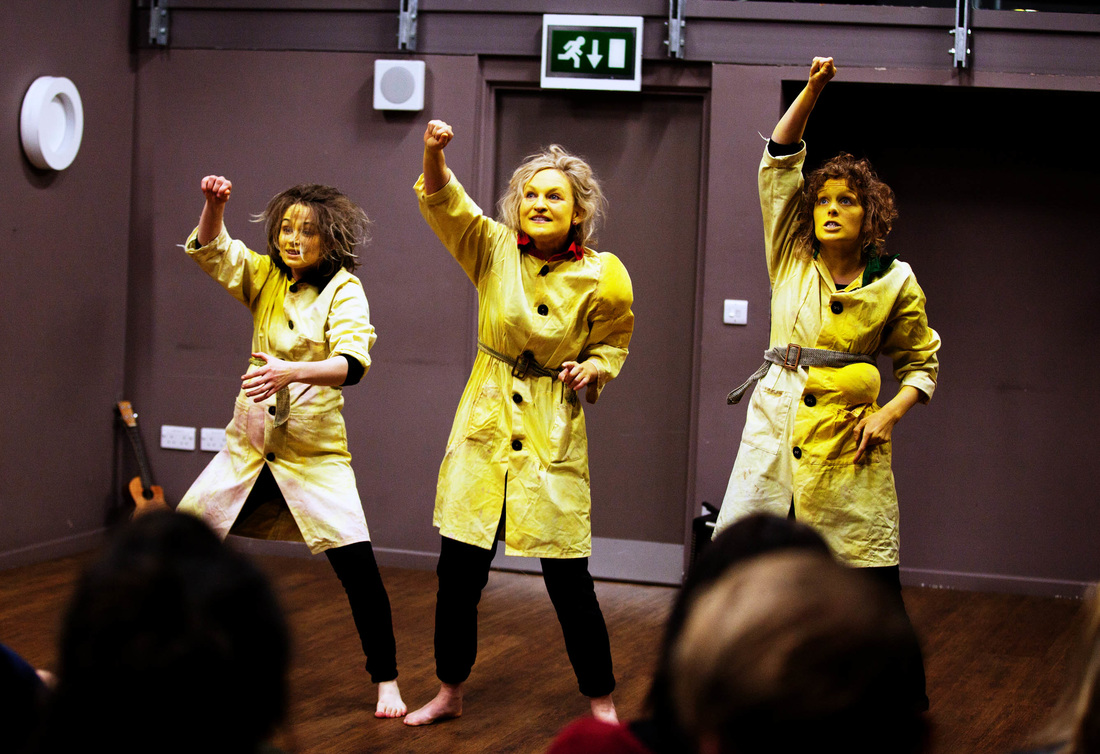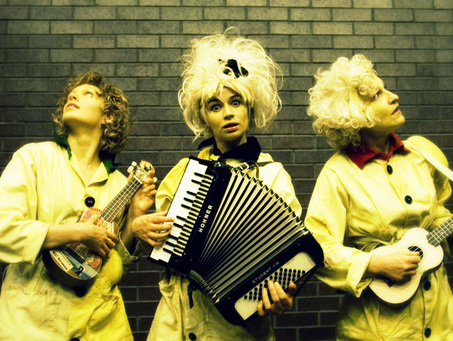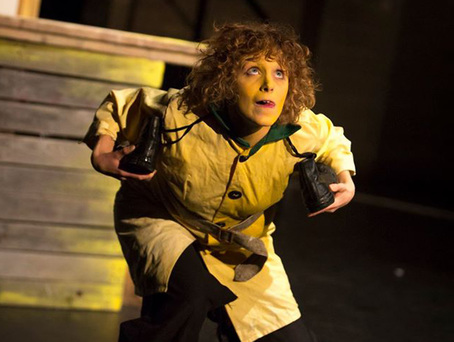‘The Canary Girls’ is a live theatre piece sharing the stories of the women who worked in the munitions factories during WW1. Using clown, physical theatre and sound design to present the unique perspectives of female munitions workers.
Meet Agnes, Anne and Betty; a motley crew of munitions workers doing their bit for the war effort. An air raid strikes sending them on an explosive journey through euphoric emancipation, forbidden friendship and anarchic dreams. A thrilling physical comedy based on the real life stories of Britain's unsung war heroines; The Canary Girls.
|
CAST
Agnes……....Katie Tranter Anne………..Robyn Hambrook Betty………..Alys North Voice of Sir...Lawrence Neale CREATIVE TEAM Director & Dramaturg: Andrea Jiménez Movement Director & Dramaturg: Noemi Fernández Stage Manager: Gary Ward Sound Designer & Composer: Roma Yagnik Film Maker: Lesley-Anne Rose Creative & Historical Consultant: Dr Tracy Elisabeth Gillman Additional sound design: Ross Flight & Rupert Philbrick Costume Designers & Makers: Sam Fisher & Amy Jones Lighting Designer: Scoon Ferguson 2018 Tour Producers: Robyn Hambrook & Katie Tranter Associate Producer: Carole Wears Poster & Flyer Design: Scott Forbes Photographer: Chris Bishop Videography & Trailer Production: Andrew Beadling, Louis Francis & Matt Jamie Research and Development Associate Artists: Karen Bell, Rosie Bristow, Matt Feerick, Bev Fox, Ross Flight, Dr Tracy Elisabeth Gillman, Kelly Jago, Rupert Philbrick |
‘Canary ’ is a live theatre piece inspired by the stories of the women who worked in Britain's munitions factories during the First World War. Set during a zeppelin air raid, Canary uses physical theatre and sound design to create a darkly comedic visceral experience that gives a voice to Britain's Munitionettes.
Photos by Chris Bishop. See more here
The journey so far...
Since 2015 Fun in the Oven have worked with North East arts venues, archives and members of the public during a period of in-depth research into the lives of the British women who were employed in Munitions factories in the North East of England during the First World War.
At Easter, 2016 the company were joined by award-winning Spanish director Andrea Jimenez who helped us continue to develop our physical theatre skills and the visual aesthetic for the piece. We wanted to focus more on archive content and to develop a narrative arc for the piece, so we brought in dramaturg; Tracy Gillman. We were supported by the Arts Council England and Live Theatre. We created 30 minutes of material that we shared with an invited audience who've provided useful feedback for the development of the piece. See more photos here
This work builds on the development the company undertook in an R&D last summer. Fun in the Oven were joined by an excellent artistic team in 2015, including; the Artistic Director of Wet Picnic, Matt Feerick; designer Kelly Jago; sound designer, Ross Flight; costume designer, Rosie Bristow; expert in clown and audience interaction, Karen Bell; Improv genius, Bev Fox and creative arts practitioner and academic, Tracy Gillman.
The development was supported by The Arts Council and North East venues; Customs House; Alphabetti; Dancecity; The Mining Institute and Headway Arts.
The development was supported by The Arts Council and North East venues; Customs House; Alphabetti; Dancecity; The Mining Institute and Headway Arts.
After the R&D period in the summer of 2015, 30 minutes of material was created and tested on audiences at the Creative Summer Residency showing at Dance City and a scratch event at Jabberwocky Market in Darlington. Both opportunities involved invaluable dialogue and feedback from audiences. “Bold”, “exciting” and “daring”. A reviewer from Exuent Magazine wrote “A musical grotesque, they clearly take inspiration from groups such as 1927, Kill the Beast and Les Enfants Terribles, but in their mixing of gruesome comedy, movement and a real political and social message, their work is very promising.” These positive responses have been encouraging for the company.
|
|
|
|
The Munitionettes: were the women employed in the Munitions factories during WW1. Here is more of a brief history and context here.
Football: Their name derived from the Munitionettes Cup which was a football tournament between different factories, and one of the first opportunities for many women to play football in the public arena. Alongside many excellent teams and players in the North East, the Blyth Spartans Munition Girls were unbeaten in their two year career, largely thanks to their star centre forward, Bella Rae. You can read more about it here.
The Propaganda Machine: Including enlisting women to boost enrolment amongst men, encouraging women to enter the work force and particularly the munitions factories, cigarette cards depicting women in wartime work sent to men at the front and a ban on newspapers reporting on munitions factory explosions to keep morale up. All fascinating material.
The Canary Girls: A nickname that arose to toxic exposure to TNT resulted in women’s skin turning yellow. Babies born at the time their mothers were handling these chemicals were also yellow, for a period. Gladys Sangster was a ‘Canary Baby’, and of her mother she said, 'Mum said you just took it for granted it happened and that was it. You were tougher in those days than what they are today!'
Notes to the Front: The more 'romantically inclined' Munitionettes would often write little notes and put them in the ammunition workers for the soldiers on the front line, hoping to strike up love affairs or lift moral. Here is one such account.
Sense of self: In the First World War it was often that women from the lower and working classes would end up working in the Munition Factories. These women seemed pretty indifferent to the dangers and risks that the factories presented and seemed to easily adopt a 'part of the hive' sort of mentality.
The Canteen: Workers would usually go home for their midday meal, but in wartime, as some travelled a long way or had no one at home to cook for them, most large factories set up canteens. One testimony expressed with conviction the importance the canteen played on improved nutrition, increased efficiency at work and the spirit of harmony and contentment the space would create for workers.


